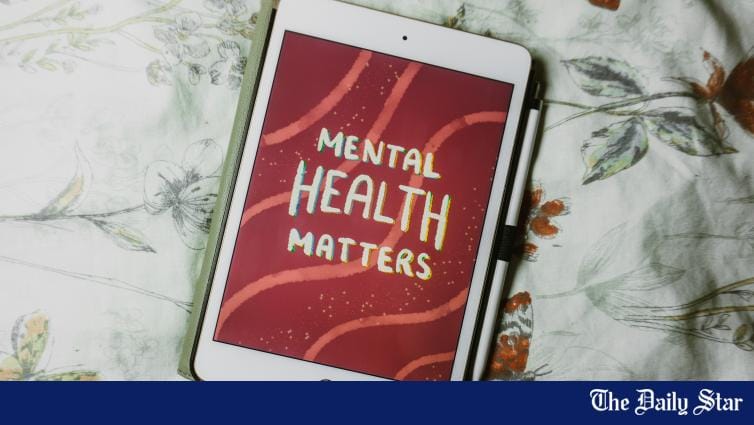In times of uncertainty and turmoil, it is crucial to prioritize our mental well-being alongside physical safety measures. Dr. Nasir Uddin Ahmed, a psychiatric consultant at Shono and Assistant Professor at Sher-E-Bangla Medical College, Barisal, sheds light on the psychological effects of prolonged exposure to stress and anxiety.
Effects of stress
During periods of intense stress, such as those experienced during social unrest, the body’s “fight-or-flight” response is activated. While this response is beneficial in short bursts, it can become detrimental when sustained over long periods. Prolonged exposure to unrest can lead to a range of mental health issues, from anxiety and insomnia to severe cases of depression. Dr. Ahmed warns that direct exposure to violence could also precipitate conditions such as post-traumatic stress disorder (PTSD). Additionally, the stress associated with unrest can manifest in physical health issues, including heart complications, chronic sleep disturbances, and elevated blood pressure.
Fighting anxiety
Recognizing the signs of trauma and seeking help is crucial in managing stress and anxiety. It is important to acknowledge your feelings and give yourself permission to grieve or react. While staying informed is essential, overconsumption of distressing news can exacerbate stress and anxiety. Dr. Ahmed emphasizes the importance of managing news consumption by reducing screen time, particularly before sleep, and setting specific times to update yourself on news. Limiting news intake to specific times of the day and relying on trustworthy sources can prevent feelings of being overwhelmed and avoid misinformation that can fuel unnecessary fears.
Strategic approaches to mental wellness
To foster healthy sleep patterns during times of crisis, engage in regular aerobic exercises, cut back on stimulants like caffeine, and ensure a balanced diet. Dr. Ahmed believes in nurturing mental peace through activities such as listening to music, journaling, or connecting with nature to calm the restless mind. Practices like meditation, deep breathing, and progressive muscle relaxation can reduce stress and enhance mood by activating the body’s relaxation response. Incorporating relaxation techniques into daily routines, such as breathing exercises or mindfulness practices, can significantly reduce stress.
In moments of acute stress, Dr. Ahmed recommends focusing on deep breathing exercises or finding a quiet space to relax. Additionally, he suggests the healing power of connection through regular touchpoints with friends and family to provide emotional sustenance in turbulent times. As we navigate through uncertainty, it is important to recognize when help is needed and take steps to seek it. Preserving mental health is essential for long-term well-being, as it allows us to cultivate calm within ourselves amidst external chaos.
In conclusion, prioritizing mental well-being during times of stress and uncertainty is crucial for overall health and resilience. By implementing strategies to manage stress, seek help when needed, and cultivate inner peace, we can navigate through challenging times with strength and resilience. Remember, taking care of your mental health is an investment in your long-term well-being.


